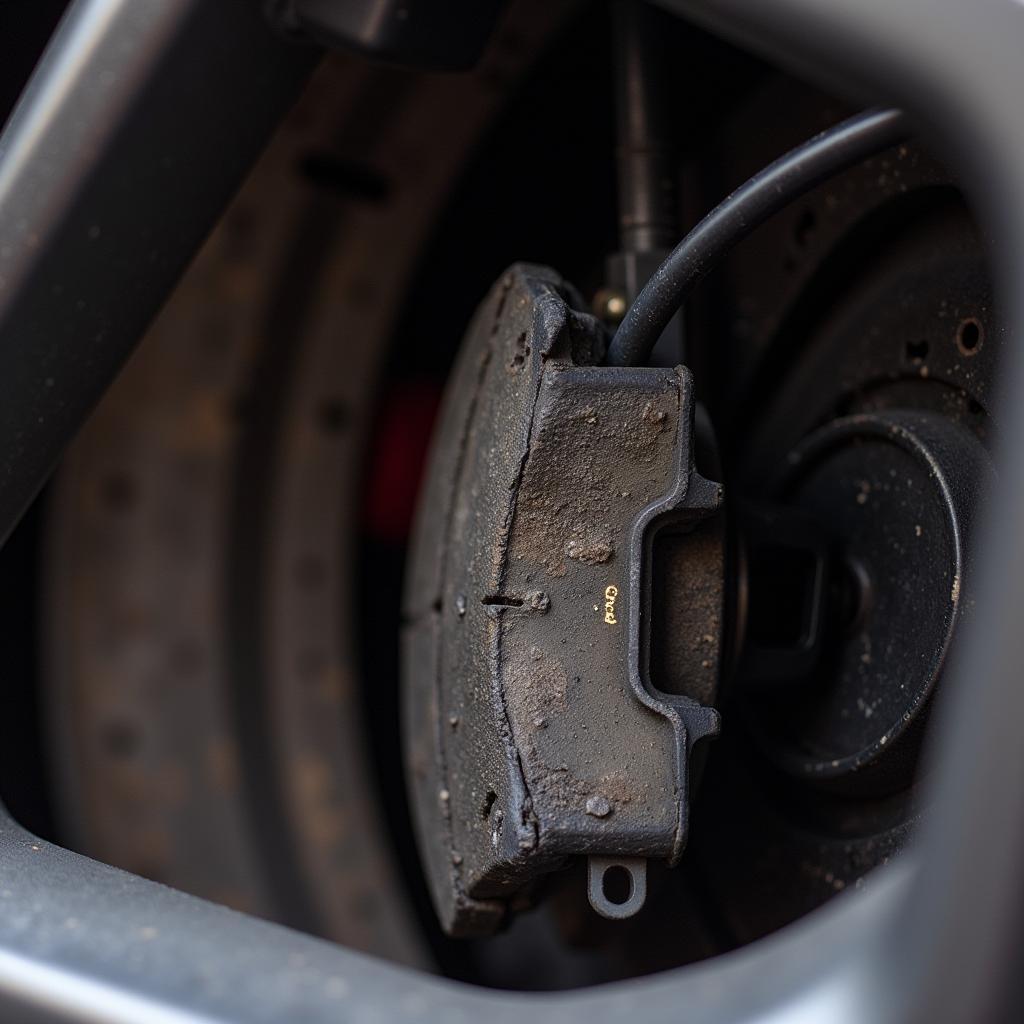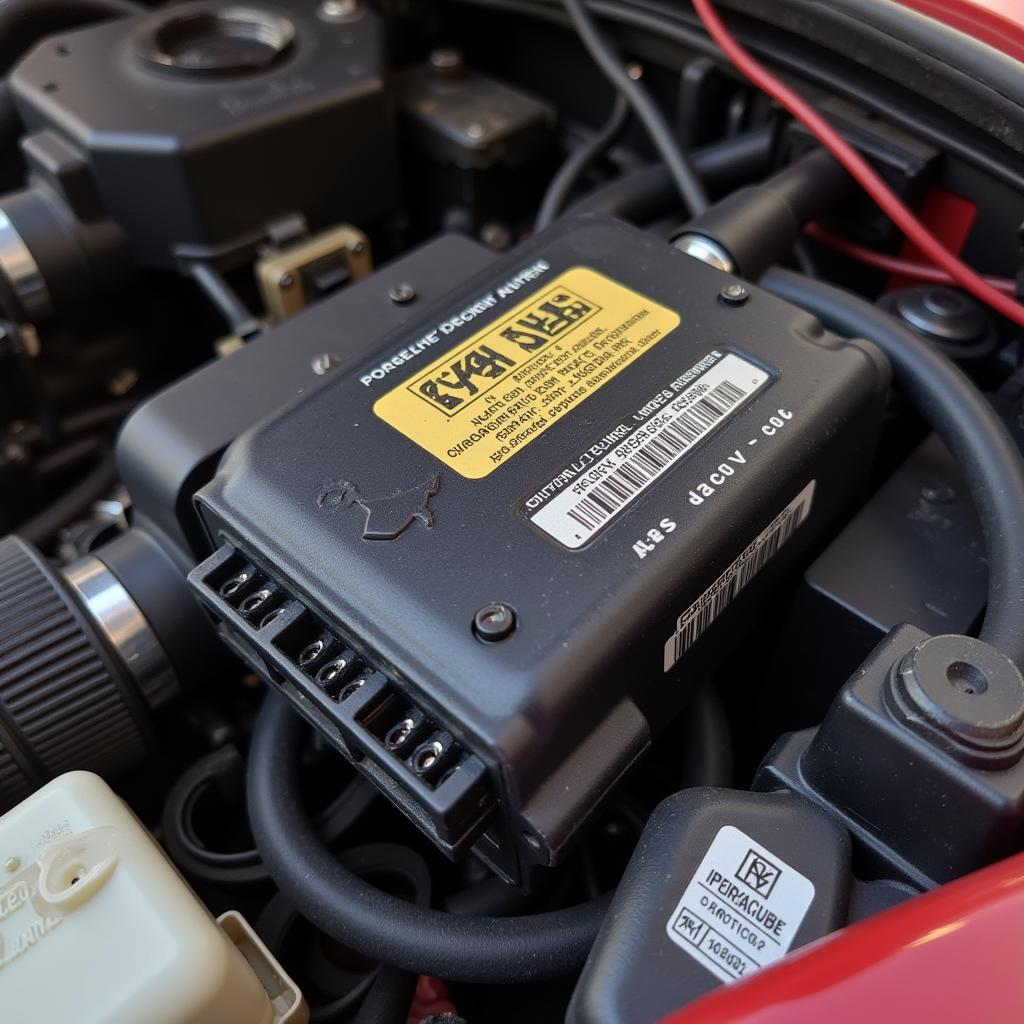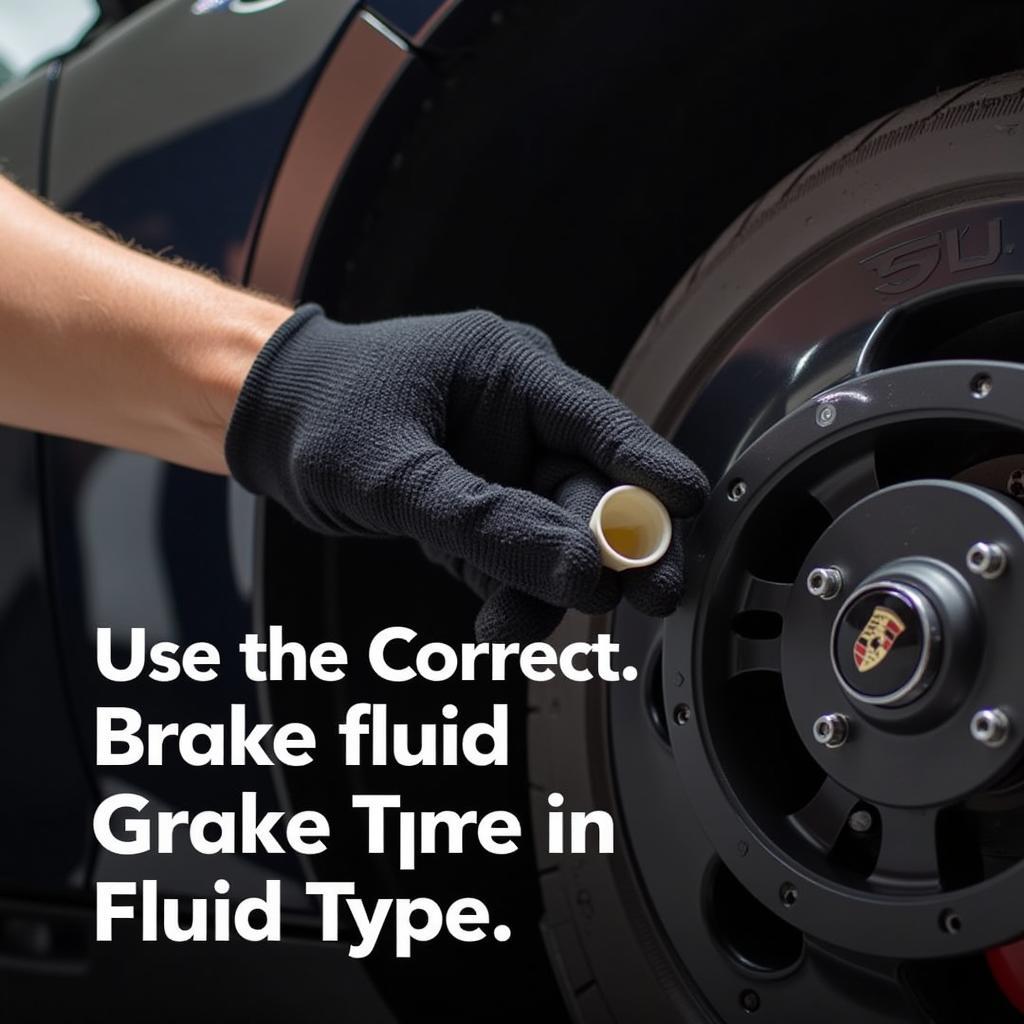A “Porsche warning brake light” illuminating on your dashboard can be an unwelcome sight. This crucial warning signal indicates a potential issue with your Porsche’s intricate braking system, demanding immediate attention. While it can be unnerving, understanding the common causes and potential solutions can help you address the problem swiftly and safely.
Decoding the Porsche Warning Brake Light
Your Porsche utilizes a sophisticated system to monitor brake fluid levels, brake pad wear, and overall braking system health. When the warning brake light illuminates, it’s the system’s way of alerting you to a potential problem. Ignoring this warning can lead to reduced braking performance and even dangerous driving conditions.
Common Causes of a Porsche Warning Brake Light
Several factors can trigger the warning brake light on your Porsche. Here are some of the most common culprits:
- Worn Brake Pads: One of the most frequent reasons for the warning light is worn brake pads. Porsche vehicles are equipped with brake pad wear sensors that trigger the light when the pads reach a certain level of wear.
 Porsche brake pad wear sensor
Porsche brake pad wear sensor
-
Low Brake Fluid Level: Brake fluid is the lifeblood of your Porsche’s braking system, transmitting force from the brake pedal to the wheels. A leak in the brake lines or a drop in fluid level below the minimum threshold can trigger the warning light.
-
Faulty Brake Light Switch: The brake light switch, located near the brake pedal, activates your brake lights when you press the pedal. A malfunctioning switch can illuminate the warning brake light on the dashboard.
-
Issues with the ABS System: Modern Porsches feature Anti-lock Braking Systems (ABS) for enhanced safety. Problems within the ABS system, such as a faulty wheel speed sensor, can also trigger the warning brake light.
 Porsche ABS control unit
Porsche ABS control unit
- Parking Brake Engaged: While seemingly obvious, inadvertently leaving the parking brake partially engaged can also trigger the warning brake light.
Troubleshooting a Porsche Warning Brake Light
While it’s always recommended to have a qualified technician diagnose and repair any brake system issues, here are some initial steps you can take to troubleshoot the problem:
-
Check Your Parking Brake: Begin by ensuring your parking brake is fully disengaged.
-
Inspect Brake Fluid Level: If the parking brake isn’t the culprit, carefully check the brake fluid level in the reservoir. If the level is low, adding brake fluid might temporarily extinguish the light, but it’s crucial to have the system inspected for leaks.
 Checking Porsche brake fluid level
Checking Porsche brake fluid level
- Visual Inspection: Carefully examine your brake pads and rotors for excessive wear or damage. Look for any signs of fluid leaks around the calipers, brake lines, and master cylinder.
When to Seek Professional Help
If your initial troubleshooting doesn’t resolve the issue or you’re uncomfortable working on your Porsche’s braking system, it’s essential to seek professional assistance. Remember, your safety is paramount.
Consider these situations as clear indicators to consult a qualified Porsche technician:
- The warning brake light remains on after adding brake fluid.
- You notice fluid leaks near the brakes or on the ground beneath your car.
- Your brake pedal feels spongy or requires more pressure than usual to stop.
- You hear unusual noises like grinding or squealing when applying the brakes.
“Addressing brake issues promptly is crucial for maintaining the optimal performance and safety of your Porsche,” says Mark Schmidt, a veteran Porsche technician with over 20 years of experience. “Ignoring warning signs can lead to more significant and costly repairs down the road.”
Remote Diagnostics and Software Solutions
Modern Porsche vehicles are equipped with advanced technology, allowing skilled technicians to perform remote diagnostics and, in some cases, even software updates to address certain issues.
For example, if a faulty sensor is triggering the warning brake light, a software update could potentially resolve the problem. However, it’s important to note that remote solutions are not always possible, and a physical inspection by a qualified technician might be necessary.
Maintaining Your Porsche Brakes
Prevention is key to minimizing brake issues and ensuring their longevity. Follow these tips to keep your Porsche’s braking system in peak condition:
- Adhere to the recommended brake fluid flush intervals outlined in your owner’s manual.
- Have your brake pads and rotors inspected regularly by a qualified technician.
- Avoid aggressive driving habits, such as hard braking and rapid acceleration, which can accelerate wear and tear.
By addressing warning signs promptly and adhering to a proactive maintenance schedule, you can enjoy many miles of exhilarating and safe driving in your Porsche. Remember, when it comes to brakes, erring on the side of caution is always the wisest course of action.
